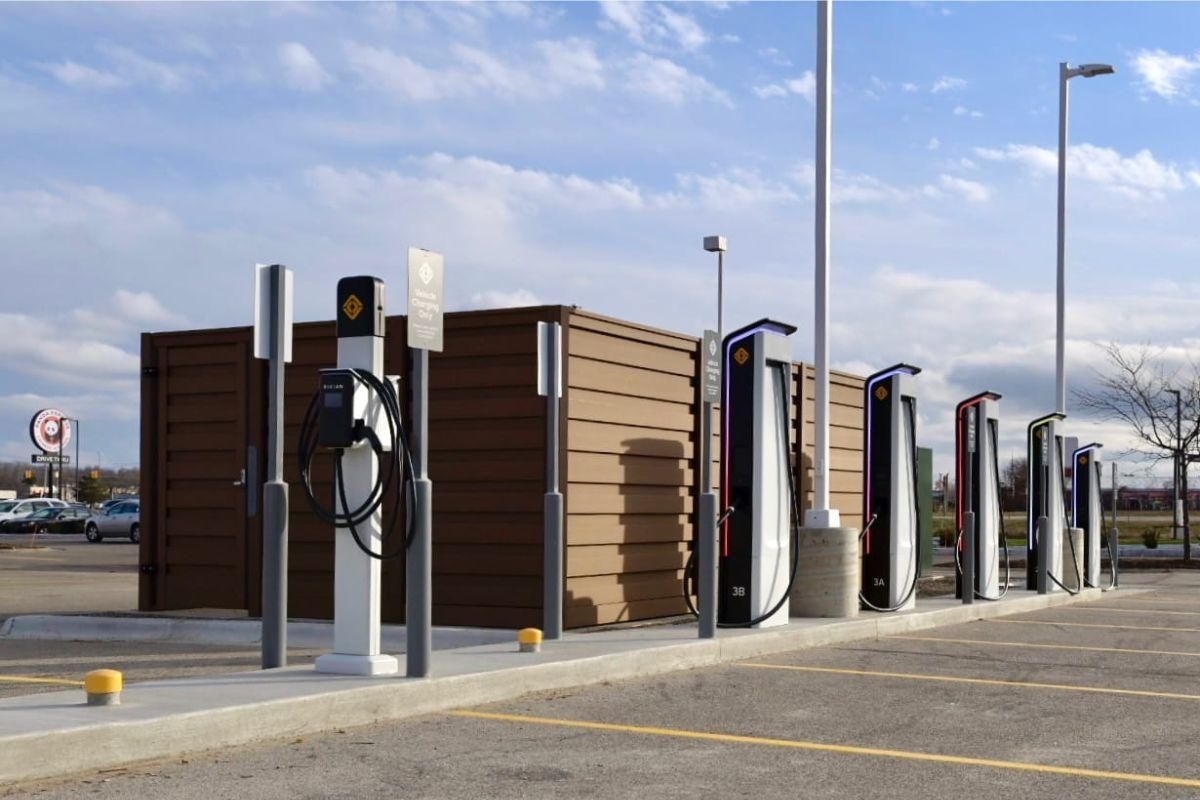Three years after approval, Michigan has opened its first EV charging station funded by the National Electric Vehicle Infrastructure (NEVI) Grant program. Located in Lansing and built in partnership with Rivian Adventure Network, the station marks the beginning of Michigan’s $110 million allocation for EV infrastructure.
The NEVI program, a $5 billion initiative under the 2021 Bipartisan Infrastructure Law, aims to create a nationwide EV charging network. In Michigan, the funding is projected to support the installation of up to 100 public charging stations by 2026, with 74 currently announced in two rounds of procurement.
“MDOT is committed to enhancing the charging network statewide to support our EV users,” said State Transportation Director Bradley C. Wieferich in a news release. “Thanks to the NEVI program, we can expedite this network.”
Despite this progress, skepticism surrounds Michigan’s ability to meet its ambitious goal of supporting 2 million EVs on state roads by 2030. The state currently has 1,700 charging locations and 50,000 registered EVs. To meet its 2030 target, Michigan would need approximately 10,000 DC fast chargers (DCFC) and 90,000 Level 2 chargers.
Jase Bolger, policy consultant for the West Michigan Policy Forum, criticized the cost-efficiency of the program. “When you look at the dollar spent for a charging station...it's the kind of numbers that only special interests could love and only bureaucrats could justify,” Bolger told The Center Square.
Nationally, the NEVI program has faced scrutiny. While 849 charging stations have been conditionally awarded, only 40 are operational, with an estimated installation cost of $163,500 per charging port.
Secretary of Transportation Pete Buttigieg defended the program, stating on Twitter, “These are only the first handful though. Most are to be built in the second half of the decade.”
Meanwhile, experts like Aaron Viles of the Electrification Coalition argue that Michigan must take more decisive action. “Michigan has taken a number of steps to support getting more EVs on the road, but there's definitely more to do in order to meet the goal of two million EVs,” Viles told The Center Square.












